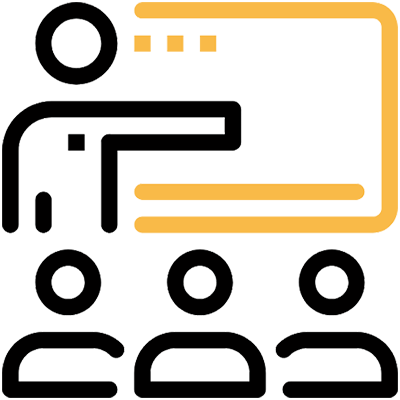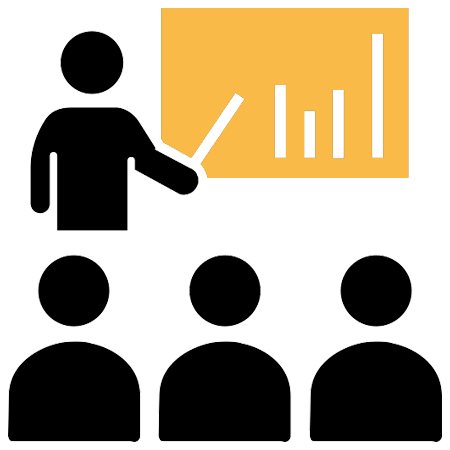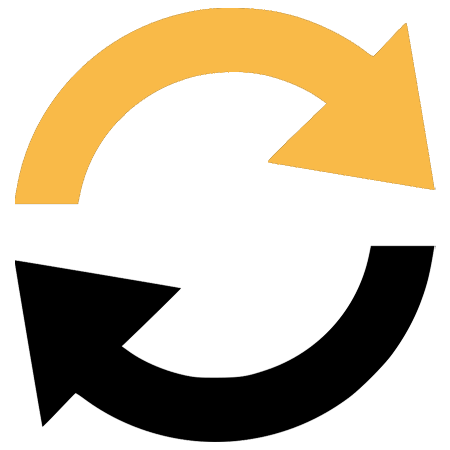Data Science Training Classes Ottawa
Certstaffix Training offers Data Science classes in Ottawa, Ontario for individuals or corporate teams. Browse our Data Science training options in Ottawa to enroll into one of our classes and start learning Data Science skills. Data Science Training Questions? 888-330-6890

Self-Paced Data Science eLearning |
||
| Course Title | Length | Price (USD) |
| AI Data Science Engineering | 12 courses | $775 |
| AI Data Science Engineering - NLP | 15 courses | $775 |
| Data Analytics with AI | 10 courses | $490 |
| Data Collection, Processing, and Analysis Bundle | 8 courses | $725 |
| Data Science Programming Essentials | 8 courses | $725 |
| Excel 365 | 7 courses | $310 |
| Introduction to Data Science with AI | 10 courses | $775 |
| Powerful Packages for Problem Solving | 5 courses | $390 |
| Introduction to Python | 7 courses | $725 |
| Advanced Python | 7 courses | $725 |
| Data Science and Machine Learning with R | 6 courses | $725 |
| SAS | 9 courses | $725 |
| SPSS | 6 courses | $310 |
| Tableau | 7 courses | $490 |
| Visualizing Data Analysis | 6 courses | $390 |
| Microsoft Azure Data Fundamentals Prep (DP-900) | 9 courses | $750 |
| Data Engineering on Microsoft Azure Prep (DP-203) | 11 courses | $700 |
Available Data Science Training Methods:
Individual Live Online
Instructor-led
Attend our live online public Data Science training for individuals. An instructor teaches you online from a location of your choice.
Team Onsite & Online
Instructor-led
Have a team needing the same training on Data Science? We can send an instructor to your office or host a private online class.
Get a Quote
Self-Paced Online
eLearning
Purchase self-paced Data Science eLearning to attend training on a timeframe that works for you or your team's schedule.
Find Out More
Why Choose Us?
 Quality Live Instructors
Quality Live Instructors
 Quality Lab Environments
Quality Lab Environments
 Hands-on
Hands-onLearning
 Small Public Classes
Small Public Classes
 Flexible Training Options
Flexible Training Options
 Private Group Training
Private Group Training
 Self-Paced eLearning Training
Self-Paced eLearning Training
 Certificate of Completion
Certificate of Completion
 One Free Retake Online
One Free Retake Online
 Quality Live Instructors
Quality Live Instructors
 Quality Lab Environments
Quality Lab Environments
 Hands-on
Hands-onLearning
 Small Public Classes
Small Public Classes
 Flexible Training Options
Flexible Training Options
 Private Group Training
Private Group Training
 Self-Paced eLearning Training
Self-Paced eLearning Training
 Certificate of Completion
Certificate of Completion
 One Free Retake Online
One Free Retake Online
Jumping into the world of data science can seem intimidating, but it doesn't take a Ph.D. to get started. Building off of your existing skills in data analytics and basics of programming, you can start crunching through big data sets. These courses will hone your skills in Python and R Programming, improve your ETL methods for obtaining and managing datasets, and help you develop mastery in the tools you'll use to create insightful visualizations that your colleagues and executives can use for better-informed decision making.
Certstaffix Training offers various ways to learn Data Science skills. Self-Paced eLearning modules area available that allow you to start and stop as needed. Pick up where you left off easily.
Class Reviews
Certstaffix Training collects detailed class reviews via a formal post-class evaluation in all our instructor-led courses.
Excel - Level 1
"This class was amazing! I only signed up for the first one but will definitely see if my company will fund more. I learned so many helpful things. It was never overwhelming like I expected from Excel — everything was explained easily and completely." - Avery K.
Adobe Photoshop CC
"The layout and structure of this course was very easy to follow and learn with. The platform that this course was taught on made learning much easier than I expected. I will definitely recommend taking a course through this company!" - Josie V.
SQL Querying - Basic
"The SQL Query for beginners course was great. The teacher did a wonderful job balancing between allowing the students to work on queries by themselves and stepping in to assist. Also great sense of humor and very willing to answer questions along the way. Definitely would recommend Certstaffix." - Christopher C.
AutoCAD Essentials
"Very good class. Content was useful and met my expectations. Instructor was very helpful and did an excellent job of keeping everyone engaged." - Dale M.
Linux Essentials
"Class was well structured and plenty of time for one-on-one training when needed. Alan was very professional and clear in his teachings." - Donald C.
Who We've Trained:
Local Businesses:
- Akron Children’s Hospital
- Alabama Power
- Blue Cross Blue Shield Michigan
- Care Wisconsin
- First National Bank Omaha
- Providence Health Center
- Darby Equipment Company
- Tetra Pak
- NSK Steering
- Tennessee Oncology
- White Plains Hospital
- Virginia Railway Express
- Boston College
- Rutgers University
National Businesses:
- AARP
- Bank of America
- Intel
- Boeing
- Spacex
- Bridgestone
- Zotos International
- Carnival Cruise Line
- Progressive Insurance
- Rolex
- Canon U.S.A.
- Marriott International
- Airbnb
State/Local Government:
- Bronx District Attorney
- Florida Department of Health
- City of Durham
- Sarasota County School District
- New York Department of Health
- Ohio Department of Taxation
- Mecklenburg County
- City of Port Lucie
- New Hampshire Housing
- Yellowstone County
- New York Power Authority
- Broward County Schools
- City of Minneapolis
- City of Tampa
Federal Government:
- 56th Medical Group
- U.S. Army
- U.S. Treasury
- Department of Homeland Security
- FAA
- U.S. Postal Service
- Library of Congress
- Department of Defense
- Federal Reserve
- U.S. Navy
- FEMA
- Social Security Administration
- Veterans Administration
- Bureau of Labor Statistics
Data Science Training FAQs
How Much Do Data Science Training Courses Cost?
Public instructor-led Data Science course prices start at $275 per student. Group training discounts are available.
Self-Paced Data Science eLearning courses cost $310 at the starting point per student. Group purchase discounts are available.
Which courses are best for data science?
A: There is no simple answer to the question of which courses are best for data science. The field of data science is vast and complex, and there are many different specialties within it. That said, there are some general principles that can guide students in choosing the right courses for their needs.
First, students should make sure that they have a strong foundation in mathematics and statistics. These subjects are the backbone of data science, and without a strong understanding of them, it will be difficult to excel in the field.
Second, students should choose courses that cover a broad range of topics. Data science is a multidisciplinary field, so it is important to have knowledge in multiple areas. This will give students a well-rounded education and prepare them for the diverse challenges they may face in their career.
Third, students should consider taking courses that focus on specific domains or applications of data science. While a broad education is important, it is also helpful to have expertise in specific areas. This can be especially useful for students who want to pursue a specific career path or specialize in a certain type of data analysis.
Finally, students should make sure to choose courses that are taught by experienced and knowledgeable instructors. Data science is a rapidly changing field, and it is important to learn from those who are at the forefront of its development. By taking courses from leading experts, students can be sure that they are getting the most up-to-date and accurate information.
Choosing the right courses for data science can be a challenge, but by following these guidelines, students can ensure that they are getting the best possible education. With a strong foundation in mathematics and statistics, and a broad understanding of the field, students will be well-prepared to pursue a successful career in data science.
How do I train to be a data scientist?
A: There is no one-size-fits-all answer to this question, as the best way to train to be a data scientist will vary depending on your previous experience and skills. However, there are some general tips that can help you get started:
1. Firstly, it is important to have a strong foundation in mathematics and statistics. This will give you the ability to understand and work with complex data sets.
2. Secondly, it is also beneficial to have experience in programming languages such as R or Python. These languages are commonly used by data scientists and will be essential for working with data.
3. Finally, it is also helpful to have some experience in machine learning. This will allow you to build models that can automatically learn and improve from data.
These are just some general tips to get you started on the path to becoming a data scientist. For more specific advice, it is best to consult with someone who is already working in the field.
Does data science require coding?
A: No, data science does not require coding. However, coding can be a helpful tool for data scientists who want to manipulate and analyze data. There are many different ways to analyze data, and coding can give you more control over the process. It can also help you automate repetitive tasks. Ultimately, whether or not you code is up to you and what works best for you and your team.
Some data scientists do not code at all, while others are proficient in multiple programming languages, such as R and Python. There is no one right way to do data science, and the tools you use will depend on your individual skills and preferences. If you're new to data science, it may be helpful to learn some basic coding skills. This will give you a better understanding of how data science works and how to manipulate data. However, you don't need to be a coding expert to be a successful data scientist. Ultimately, the most important skill for data scientists is the ability to think critically and solve problems. If you're good at that, you can learn whatever coding skills you need along the way.
What are the top Data Science skills?
A: There is no doubt that data science is one of the hottest fields in the tech industry right now. And with good reason – businesses of all sizes are looking to harness the power of data to gain insights that can help them improve their operations and bottom line.
But what does it take to be a successful data scientist? In addition to strong technical skills, data scientists must also be able to effectively communicate their findings to non-technical stakeholders and have a keen business sense to know how their insights can be applied to real-world problems.
Top Data Science Skills
Technical Skills
First and foremost, data scientists need to have strong technical skills. This includes a deep understanding of statistics and machine learning algorithms, as well as experience working with large datasets. Additionally, data scientists should be proficient in at least one programming language, such as Python or R, and have experience using data visualization tools like Tableau or D3.js.
Communication Skills
Data scientists must be able to effectively communicate their findings to non-technical stakeholders. This includes being able to explain complex statistical concepts in layman’s terms and creating clear and concise data visualizations that tell a story. Additionally, data scientists should be able to make recommendations on how their insights can be applied to solve real-world business problems.
Business Skills
Finally, data scientists need to have a keen business sense to know how their insights can be applied to real-world problems. This includes understanding the business goals of their organization and being able to translate their findings into actionable steps that can help achieve those goals. Additionally, data scientists should be familiar with common business metrics and KPIs, as well as how to use data to measure and improve those metrics.
While there is no one-size-fits-all answer to the question of what skills data scientists need to succeed, the above three skills are a good foundation on which to build. As data science continues to evolve, data scientists will need to continuously adapt their skillset to keep up with the latest trends and technologies.
Where Can I Learn More About Data Science?
Data Science Blogs
Data Science User Groups
Data Science Online Forums
Explore Data Science Training Classes Near Me:
Certstaffix Training provides Data Science classes near me or online, depending on the number of students involved. We offer online courses for individual learners, as well as in person classes at your office for corporate groups. Our trainers are highly experienced professionals with the expertise necessary to help you gain a thorough understanding of Data Science concepts and tools. With our courses available online for individuals or in person for corporate groups, it's easy to develop your Data Science skills. Start learning today and see how Certstaffix Training can help you reach your goals.
AL
Data Science Training BirminghamAR
Data Science Training FayettevilleData Science Training Little Rock
AZ
Data Science Training PhoenixData Science Training Tucson
CA
Data Science Training BakersfieldData Science Training Fresno
Data Science Training Los Angeles
Data Science Training Oxnard
Data Science Training Sacramento
Data Science Training San Diego
Data Science Training San Francisco
Data Science Training San Jose
CO
Data Science Training Colorado SpringsData Science Training Denver
CT
Data Science Training HartfordData Science Training New Haven
Data Science Training Stamford
D.C.
Data Science Training Washington, DCFL
Data Science Training Daytona BeachData Science Training Fort Myers
Data Science Training Jacksonville
Data Science Training Lakeland
Data Science Training Miami
Data Science Training Orlando
Data Science Training Sarasota
Data Science Training Tampa
GA
Data Science Training AtlantaData Science Training Augusta
HI
Data Science Training HonoluluIA
Data Science Training Des MoinesID
Data Science Training BoiseKS
Data Science Training WichitaIL
Data Science Training ChicagoIN
Data Science Training IndianapolisKY
Data Science Training LouisvilleLA
Data Science Training Baton RougeData Science Training New Orleans
MA
Data Science Training BostonData Science Training Springfield
Data Science Training Worcester
ME
Data Science Training PortlandMI
Data Science Training DetroitData Science Training Grand Rapids
MD
Data Science Training BaltimoreMN
Data Science Training MinneapolisMO
Data Science Training Kansas CityData Science Training St. Louis
MS
Data Science Training JacksonNC
Data Science Training CharlotteData Science Training Durham
Data Science Training Greensboro
Data Science Training Raleigh
Data Science Training Winston-Salem
NE
Data Science Training OmahaNM
Data Science Training AlbuquerqueNV
Data Science Training Las VegasNY
Data Science Training AlbanyData Science Training Buffalo
Data Science Training New York City
Data Science Training Poughkeepsie
Data Science Training Rochester
Data Science Training Syracuse
OH
Data Science Training AkronData Science Training Cincinnati
Data Science Training Cleveland
Data Science Training Columbus
Data Science Training Dayton
Data Science Training Toledo
OK
Data Science Training Oklahoma CityData Science Training Tulsa
OR
Data Science Training PortlandPA
Data Science Training AllentownData Science Training Harrisburg
Data Science Training Philadelphia
Data Science Training Pittsburgh
Data Science Training Scranton
RI
Data Science Training ProvidenceSC
Data Science Training CharlestonData Science Training Columbia
Data Science Training Greenville
TN
Data Science Training ChattanoogaData Science Training Knoxville
Data Science Training Memphis
Data Science Training Nashville
TX
Data Science Training AustinData Science Training Dallas
Data Science Training El Paso
Data Science Training Houston
Data Science Training McAllen
Data Science Training San Antonio
UT
Data Science Training Salt Lake CityVA
Data Science Training RichmondData Science Training Virginia Beach
WI
Data Science Training MadisonData Science Training Milwaukee
WA
Data Science Training SeattleData Science Training Spokane
Software Training
Courses by Location
Individuals: Data Science Online Classes in Ottawa
When individuals need to learn Data Science in Ottawa, Certstaffix Training provides online classes in the course formats listed above. Our online Data Science training classes allow you to learn from the convenience of your home or office in Ottawa, eliminating the need to travel. View the available online Data Science course formats above.
Corporate Groups: Data Science Classes in Ottawa
When you need Data Science onsite training in Ottawa for a corporate group, we can send an instructor to your office or hold online private classes. Data Science onsite training classes allow face-to-face in-person instruction by sending an instructor to your office in the Ottawa area. You can also schedule a private live online training for your group in Ottawa that allows for a class for just your employees. Get a quote today online or give us a call at 888-330-6890.
Ottawa Data Science Course Descriptions
| Refine Results |
43 Results
Advanced Python - eLearning Bundle
$725 (USD) • 7 Courses • 9h 57m Training • This eLearning bundle consists of these courses: Advanced Data Structures and Algorithms in Python & Data Wrangling with Python 3.x & Deep Learning for Python Developers
Advanced Python Programming
$2,155 (USD) • 3 Days • In this Python training course, students already familiar with Python programming will learn advanced Python techniques such as: the Collections module, mapping and filtering, lamba functions, advanced sorting, working with regular expressions, working with databases, CSV files, JSON, XML, and more...
Advanced Statistical Analysis using SPSS
$1,320 (USD) • 2 Days • In this two-day seminar you will consider in depth some of the more advanced SPSS statistical procedures that are available in SPSS. You'll take a look at several advanced SPSS statistical techniques and discuss situations when each may be used, the assumptions made by each method, how to set up the analysis using SPSS and how to interpret the results.
AI Data Science Engineering - eLearning Bundle
$775 (USD) • 12 courses • 38h 37m Training • Become a master of modern AI, data science, and big data engineering by leveraging Python, Apache Spark, TensorFlow, and PyTorch to build intelligent, scalable, and impactful solutions.
Data Analytics with AI - eLearning Bundle
$490 (USD) • 10 courses • 10h 22m Training • This eLearning Bundle includes these courses: Use ChatGPT’s Advanced Data Analytics, ChatGPT and Prompt Engineering With Advanced Data Analysis, & Analytics and AI Beginner: Parts 1-4.
Data Collection, Processing, and Analysis - eLearning Bundle
$725 (USD) • 8 Courses • This eLearning bundle consists of these courses: Learning Data Analysis with R, Learning Path: Statistics and Data Mining for Data Science, Data Science: Mathematical Methods & Quantitative Trading: Data and Machine Learning (ML)
Data Management & Manipulation with SPSS
$1,320 (USD) • 2 Days • The focus of this two-day course is on the use of a wide range of transformation techniques, ways to automate your work, manipulate your data files and results, and send your output to other Windows applications. You will gain an understanding of the various options for operating SPSS and how to use syntax to perform data transformations efficiently.
Data Science and Machine Learning with R eLearning Bundle
$725 (USD) • 6 Courses • In this practical, hands-on course, you’ll learn how to program in R and how to use R for effective data analysis, visualization and how to make use of that data in a practical manner.
Data Science Programming Essentials eLearning Bundle
$725 (USD) • 8 Courses • This eLearning bundle consists of these courses: Introduction to Python, Python for Everyday Life, Learning Python for Data Science and Learn R programming.
DP-203: Data Engineering on Microsoft Azure Certification Prep - eLearning
$700 (USD) • 11 courses • 26h 1m Training • Prepare to become a certified Azure Data Engineer by mastering the design, implementation, and optimization of robust data solutions on Microsoft Azure for the DP-203 exam.
DP-900: Microsoft Azure Data Fundamentals Certification Prep - eLearning
$750 (USD) • 9 courses • 16h 18m Training • Master core data concepts and Azure data services and prepare to earn your DP-900: Microsoft Azure Data Fundamentals certification, launching your career in cloud data.
Excel - Combo (Levels 1-3)
$860 (USD) • 3 Days • Enroll in all 3 Levels of our instructor-led Excel classes and save $70. This course package includes: Excel - Level 1, Excel - Level 2 and Excel - Level 3.
Excel - Level 1
$310 (USD) • 1 Day • This course will introduce students to spreadsheets and the fundamentals concepts of Microsoft Excel.
Excel - Level 2
$310 (USD) • 1 Day • This course will teach students how to perform more advanced calculations and work with larger worksheets in Microsoft Excel.
Excel - Level 3
$310 (USD) • 1 Day • This course will teach students advanced tasks in Microsoft Excel.
Excel - Dashboards
$310 (USD) • 1 Day • This course builds upon the foundation knowledge presented in the Excel - Level 1 course and will help start you down the road to creating advanced workbooks and worksheets that you can use to create a dashboard.
Excel - Data Analysis with PivotTables
$310 (USD) • 1/2 Day • Upon successful completion of this course, you will be able to use Excel advanced PivotTable functionality to analyze your raw data.
Excel - VBA Programming
$1,060 (USD) • 3 Days • This 3-day Excel VBA Programming course is designed to give experienced Microsoft Excel users proficiency in creating procedures that run in response to specific events, working with control structures, developing user forms to accept or display data, validating the data entry in user forms, debugging and handling errors in code, and much more!
Introduction to Data Science with AI - eLearning Bundle
$775 (USD) • 10 courses • 22h 10m Training • Transform raw data into powerful insights and unlock the future of AI with this comprehensive bundle, equipping you with essential data science, Python, and machine learning skills for real-world impact.
Introduction to Python - eLearning Bundle
$725 (USD) • 7 Courses • This eLearning bundle includes these courses: Learn Python in 3 Hours, Introduction to Python & Python for Everyday Life
